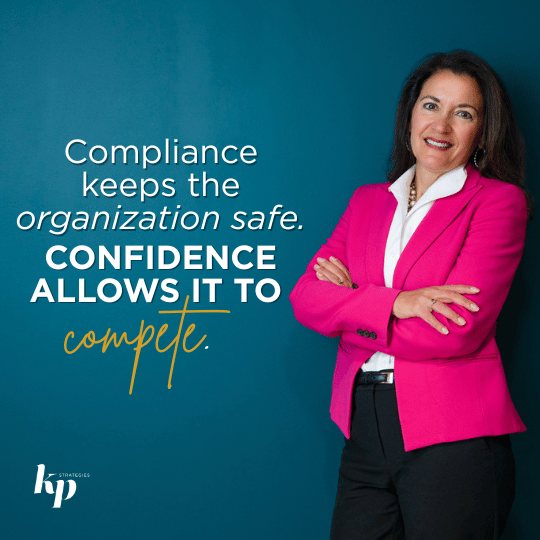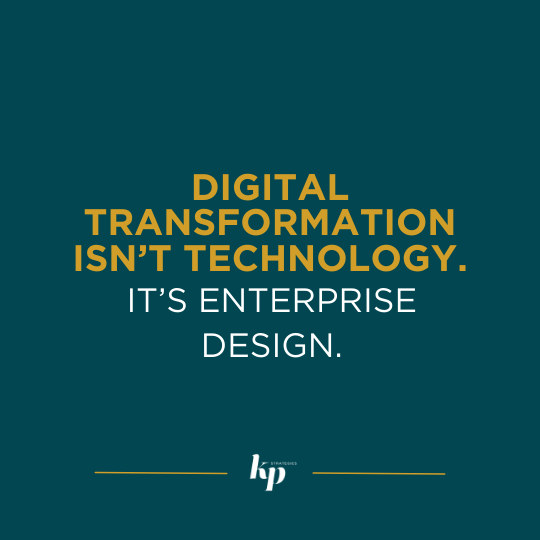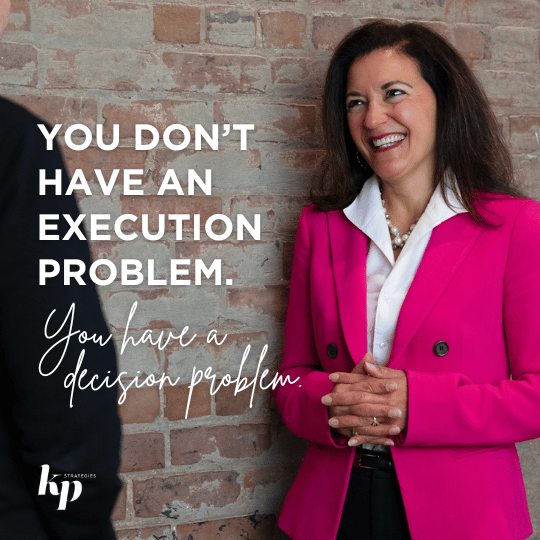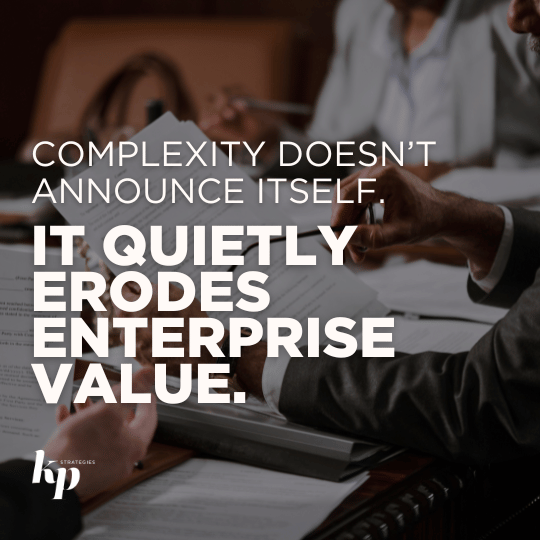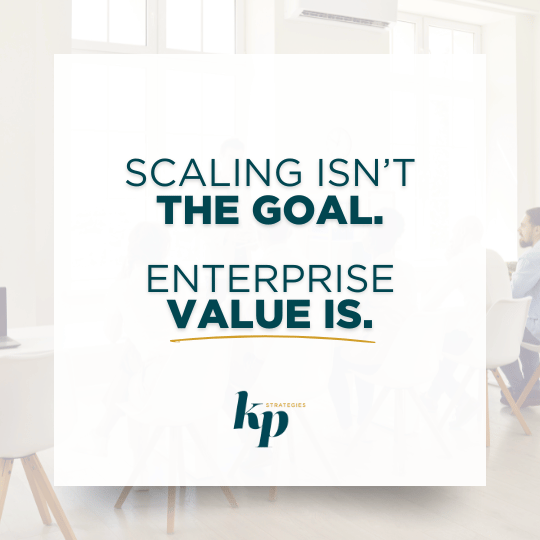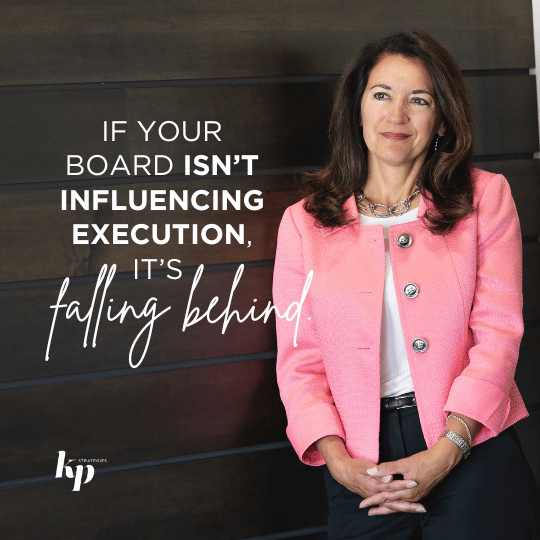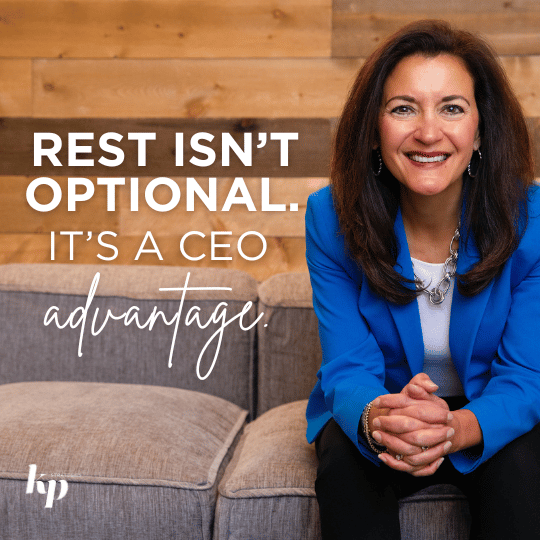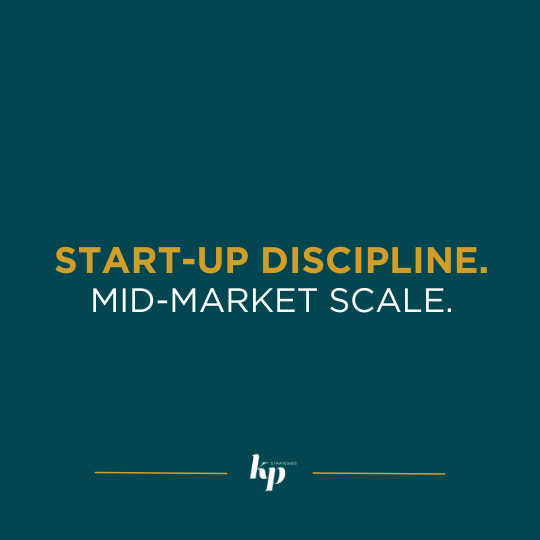

The Corner Office

From Compliance to Competitive Advantage: Rethinking Digital Risk
A board chair once said to me, “We’re compliant. But I’m not sure we’re confident.” Cybersecurity reviews were thorough. Policies were in place. AI governance was documented. On paper, the organization was doing everything right. But when the CEO talked about launching a new digital capability or accelerating a partnership, hesitation filled the room. Not

Digital Transformation Isn’t Technology. It’s Enterprise Design.
A CEO said to me after a board meeting, “They approved the investment. But I don’t think they helped me make it succeed.” The AI use case was compelling. The numbers made sense. The vote was unanimous. And yet, as the CEO walked out, there was no new clarity. No sharper focus. No shared understanding

From Governance to Architecture: How Boards Shape Enterprise Value
A CEO once said to me, “We have great meetings. But I’m not sure they’re actually helping me make the hard decisions.” The board was engaged. The dashboards were thorough. Governance was solid. Yet the CEO still left carrying the weight alone. The conversation had been informative, but it hadn’t been catalytic. That changed when

The First Team: Where Enterprise Value Is Won or Lost
A CEO once said to me, “I spend more time mediating between my executives than leading the business.” On paper, the leadership team was strong. Each executive was highly capable. Each function was performing. But in the room, something was off. Discussions felt territorial. Priorities competed. Decisions took longer than they should have. The board

Decision Velocity: The Real Growth Engine
A CEO once said to me, “We’re not stuck. We’re just… slow.” The company had strong people, solid data, and a clear strategy. Yet every major decision took multiple meetings, layers of alignment, and endless follow-ups. By the time a choice was made, the opportunity had shifted. The board was frustrated. The CEO was frustrated.

Why Complexity Is the Silent Killer of Enterprise Value
A board chair once said to me, “We’re doing well… but I can’t explain our business as simply as I used to.” The CEO felt it too. Meetings were longer. Decisions took more cycles. Teams were busy, but the momentum felt slower. Nothing was “wrong,” yet everything felt heavier. That is how complexity enters an

Scaling Isn’t the Goal — Enterprise Value Is
A CEO said to me recently, “We’re growing faster than ever, but the business feels heavier, not stronger.” Revenue was up. The board was supportive. The strategy looked sound. Yet decision-making was slowing. The leadership team was stretched. Complexity was rising faster than confidence. That is usually when leaders say, “We’re scaling.” But scale is

From Strategy to Results: What High-Impact Boards Must Execute Differently in 2026
As boards enter 2026, the conversation has shifted decisively from strategy formulation to strategy execution. That shift mirrors what many experienced directors already know: enterprise value is created not by what the board reviews, but by how it engages. According to the National Association of Corporate Directors, more than 60% of directors identify strategy execution

Pause, Rest, and Reflect
A CEO I coach once said at year-end: “I feel like I’ve been sprinting for 12 months straight. I’m exhausted — and so is my team. But if I stop, I worry everything will fall apart.” That mindset is common among mid-market CEOs. The demands of leadership rarely slow down, and yet here’s the paradox:

From Innovation to Enterprise Value: Lessons Mid-Market CEOs Can Steal from Start-Ups
Start-ups move fast because they have no choice. I’ve worked with early-stage healthcare companies building population health platforms, value-based care solutions, and digital wellness models. They didn’t have the luxury of bureaucracy. They had to scale or disappear. That urgency forced them to test, pivot, and measure relentlessly. Mid-market CEOs face a different challenge: complexity
